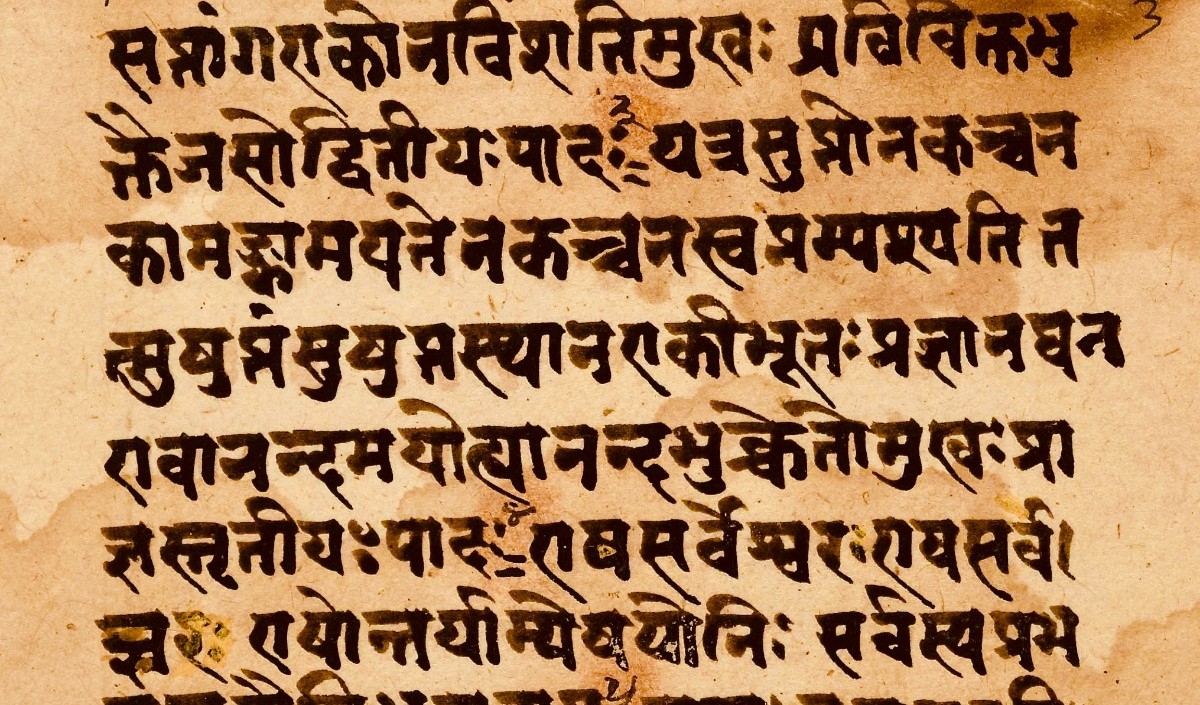Amazing Linguistic Philosophy of Sanskrit
14 Jul 2024 08:05:50

By DR BHUSHAN KUMAR UPADHYAYA :
S
anskrit has got a very rich
and long tradition of linguistic philosophy. In his
book Studies in Sanskrit
Grammar, the famous linguist
and Indologist of
Pennsylvanian university,
George Cardona has outlined
the great historical and stupendous work done in the
Indian subcontinent by the
Indian scholars of ancient
time. Starting from Panini,
Katyayana, Patanjali and
Bhartrihari, George Cardona
has analysed the linguistic philosophy of Sanskrit in a very
detailed manner.
Since the Rigvedic time
Indian seers have delved deep
into the origin of Shabda or
Word. In one Rig Vedic hymn
four types of Shabda or Word
are described.
The fourth type
of speech which humans articulate is called Turiya or fourth.
It contains sound and different
phonemes. The third type of
sound is called Madhyama or
middle. It is the state of the
speech just before articulation.
It is subtle in nature. The second kind of speech has been
called Pashyanti or Seeing. It is
mysterious, subtle and undivided. The first one is called
Para or beyond. This is the pure
state of consciousness from
which the creation is said to
have originated.
This entire concept of the
word is called Nada Brahma or
the divine sound. It is the belief
of Indian seers that the entire
cosmos is the result or the
vibratory product of the divine
sound. In other traditions such
as in Christianity and Islam,
the word has been assigned
divinity. The Bible says that in
the beginning God was Word
and Word was God.
In this context, the Indian
linguists and philosophers
have used a very technical
word Sphota or bursting or
opening. Bhartrihari , a great
linguist and philosopher of
fifth century AD has composed
a historical treatise named
Vakyapadiya. In the theory of
Sphota, Bhartrihari has
described the external and
internal dimensions of the
word. According to him any
language contains Varna or
alphabets, Pada or words and
Vakya or sentences. When a
word is uttered, sounds reach
the eardrums and through the
nervous system it goes to the
brain, where the mind assigns
meaning to it. The meaning is
already inherent in the mind.
That inherent meaning manifests and the faculty which is
instrumental in the expression
of the meaning is called Sphota
by Bhartrihari. This is a very
sophisticated theory of
Bhartrihari. It has generated
immense academic interest
worldwide amongst the great
linguists of the world.
Physics, psychology and
neuroscience have made deep
studies in the mechanisms of
articulatory and auditory
functions of human speech.
Neuroscience has discovered
very significant and subtle
neural reactions in the fields of
speech and language. Right
from the neural fire in the
brain to the articulation of
sounds, a very complex and
sophisticated sets of processes
take place. Sound waves are
converted into electric waves
and again the brain understands its meaning and concepts through a very intricate
and convoluted process.
When we look at the process
which Indian linguists and
philosophers have propounded
about articulation and audition of words, we are amazed
at the length and depth of
their thoughts, concepts and
visualisation.
(The writer is Former DG
Police & CG, Homeguards,
Maharashtra) ■